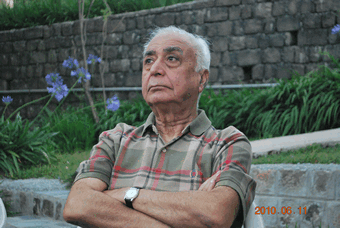Formerly Professor of Psychiatry, All India Institute of Medical Sciences, New Delhi, India and Regional Advisor for Mental Health, Eastern Mediterranean Region, World Health Organization

During the late 1970s, Narendra Wig, who died at the age of 88 years on 12 July 2018, led a highly successful community mental health initiative in rural areas of India from the Postgraduate Institute, Chandigarh. His pioneering work in this field led to significant changes in the approach to mental health services, not only in India but in many other economically developing countries. He organised national level meetings in Delhi in 1982, which produced a National Mental Health Programme (NMHP) that insisted on mental health forming a part of the total health programme. He wanted to see psychiatric wards moving out of mental hospitals and developing in general medical hospitals. So passionate was he in advocacy of a community psychiatric approach that, after the Delhi meetings, he and some colleagues called on the then Health Secretary, waking him late at night and still in his nightclothes, to urge him to incorporate the NMHP into the national health strategy.Reference Murthy, Rao and Tandon1
This work led to his appointment as Regional Advisor in Mental Health to the World Health Organization (WHO) Middle East Region, where he spread his philosophy to the 22 countries, from Morocco to Pakistan. In particular, he contributed to the development of mental health programmes in Pakistan and school mental health programmes in Egypt. His vision was to make the benefits of modern psychiatry available to all sections of the population, rich and poor; to combine biomedical and psychosocial approaches to psychiatric practice; to use emerging technologies and to make psychiatry more relevant to a country's cultural needs.
Narendra pioneered research and clinical developments in many other areas of psychiatry. He was among those involved in the ICD-9 (1978) and ICD-10 (1992) revisions of the WHO psychiatric classification system, emphasising throughout the importance of taking into account cultural variations in the presentation and course of psychiatric disorders. He contributed significantly to studies of the phenomenology of acute psychosis and schizophrenia, noting differences in levels of criticism and emotional expression in Indian compared with Western European samples. He was a collaborator in the WHO collaborative studies looking at the outcome of people with schizophrenia in both low- and middle-income countries and high-income countries. Alongside his work in classification, he played an active part in the development of reliable and valid tools for psychological assessment in India. Unusually for a psychiatrist, he studied the emotional sequelae of family planning measures. He and his colleagues carried out a number of studies on drug, especially cannabis, use.
Narendra was born in 1930 in Gujranwala, Punjab, now in Pakistan. After the Partition of India, his family moved to Bareilly, in Uttar Pradesh, in northern India. He won a scholarship to King George's Hospital Medical College in Lucknow and qualified MB, BS in 1956. Not long after qualification, he was awarded a Rockefeller Foundation Scholarship and went both to the UK, where he was placed at the Maudsley Hospital, and to the USA for postgraduate training. On his return, he moved to Chandigarh to found the Department of Psychiatry at the Postgraduate Medical Institute there. In the early 1970s, he set about developing community psychiatric services in Raipur Rani. In 1976, his Department became a WHO Collaborating Centre. In 1980 he moved to Delhi to head the Psychiatric Department of the All India Institute of Medical Sciences. In 1984 he was appointed WHO Regional Advisor in Mental Health at the Eastern Mediterranean Regional Office. After making a notable contribution, he retired from WHO in 1991 and in 1997 was made Emeritus Professor of Psychiatry at the Postgraduate Institute in Chandigarh.
After retirement, Narendra continued to work for a further 25 years in an unpaid capacity as a psychiatrist delivering free mental healthcare to the poorest of the poor in rural villages and urban slums.
Naren had a remarkable personality. He was warm, gentle, mild mannered, calm and moderate. As a professional, he was able, clinically astute and vastly knowledgeable. He was venerated by students and trainees who saw him as a guru who educated them not only in the practice of clinical medicine and psychiatry but also in lifestyle and life conduct. A guru is more than a teacher – he reveals the meaning of life, and this is how many of those who came into contact with Naren came to see him.
Naren received many honours. In particular, in 1991 he was the first Indian psychiatrist to be awarded the Honorary Fellowship of the Royal College of Psychiatrists. In 2003 the Bombay Psychiatric Society awarded him their lifetime achievement award. In 2004 a psychiatric centre in Lahore, Pakistan was named after him.
Outside of psychiatry, he had many interests including Urdu poetry, particularly that by Mirza Ghalib, and birdwatching. He and his wife, Veena, whom he married in 1963, were a devoted couple who had two sons, Siddartha and Anish. Veena predeceased him and he is survived by his sons and grandchildren.



eLetters
No eLetters have been published for this article.